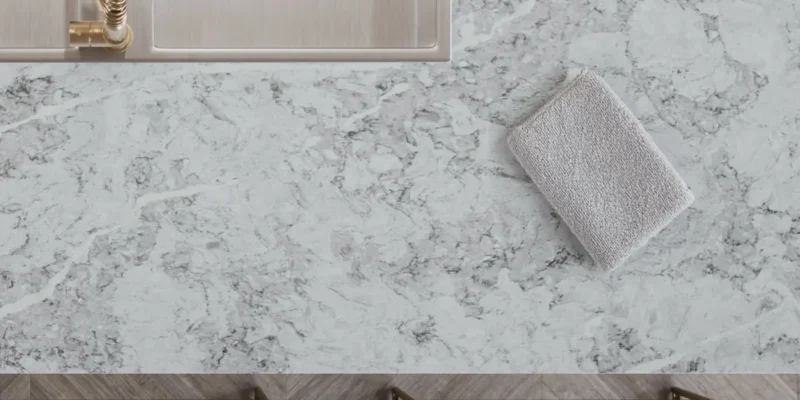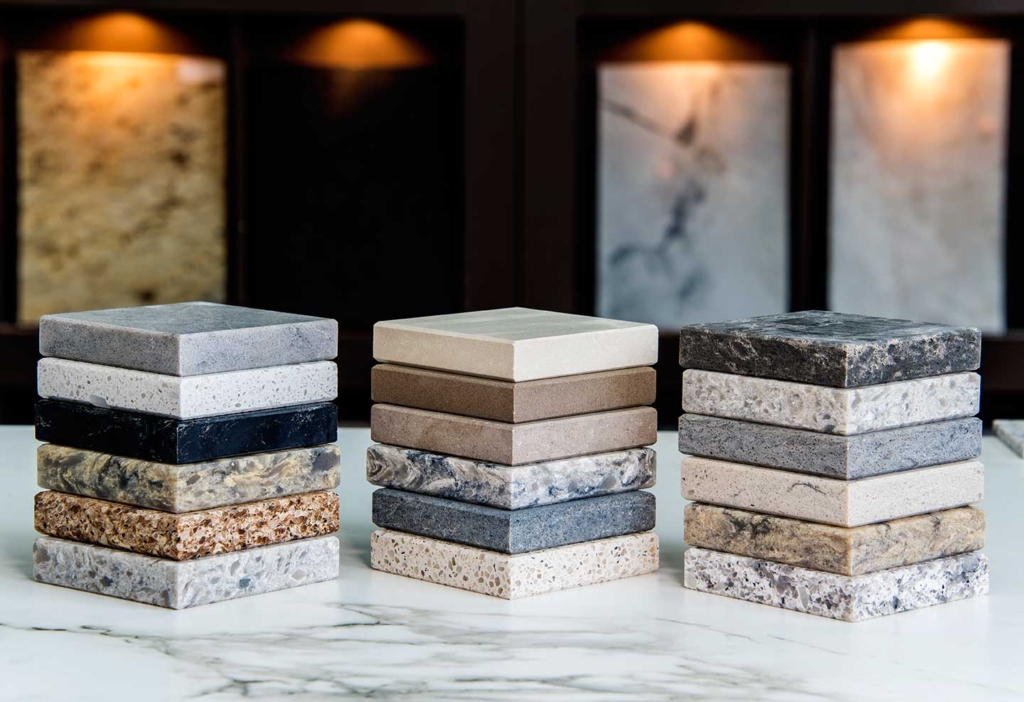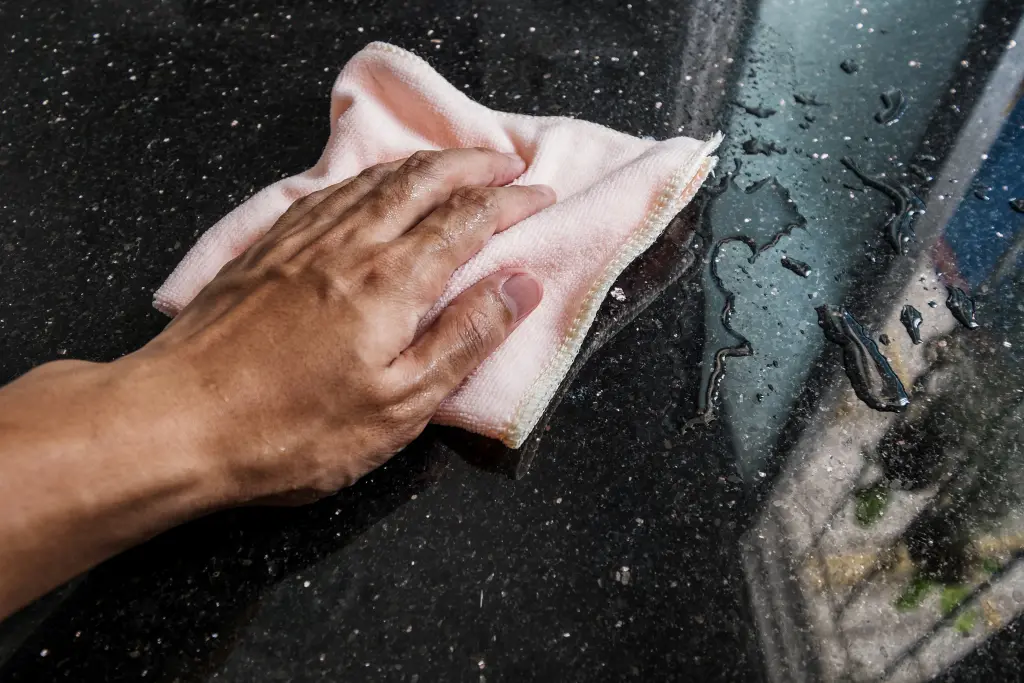


Stone countertops have become a top choice for homeowners across Ontario, Canada, and beyond. They are elegant, durable, and available in a variety of natural materials such as granite, quartz, and marble. However, while stone countertops offer unmatched beauty, they require specific care techniques to maintain their natural shine and strength over time.
This cleaning guide for stone countertops covers everything you need to know, from daily cleaning routines to deep maintenance, safe cleaning products, stain removal strategies, and long-term care. Whether you own a granite island, quartz kitchen countertops, or a marble vanity, this comprehensive guide will help you keep your investment looking as good as new.
Unlike laminate or stainless steel, natural stone is porous and sensitive to certain chemicals. Using the wrong cleaner can cause etching, dullness, or even permanent damage. Each type of stone—granite, marble, quartzite, or engineered quartz—reacts differently to acids, oils, and abrasives. Understanding the unique characteristics of your stone surface is the first step in providing proper care.

Granite is one of the most durable and popular stones. It resists heat, scratches, and everyday wear. However, it needs to be sealed regularly to prevent stains from penetrating its pores. Granite is perfect for kitchens but still requires non-acidic cleaners to maintain its polish.
Quartz is an engineered stone made from natural quartz crystals combined with resins. It is non-porous and does not require sealing, which makes it easier to maintain. However, it is sensitive to high heat and harsh chemicals like bleach.
Marble is timeless and luxurious but also highly porous and soft. It is prone to etching from acidic foods like lemon juice or vinegar. Maintaining marble requires gentle cleaning and immediate stain treatment.
Quartzite, soapstone, and slate are also common choices. Each has unique qualities, but all require careful cleaning with pH-neutral products to avoid long-term damage.
While daily maintenance keeps your countertops looking fresh, there are times when a more intensive cleaning is necessary. Stains, dull spots, or grease buildup can affect the natural beauty of stone surfaces. Deep cleaning not only restores shine but also prolongs the lifespan of your countertops. Below, we explore effective methods tailored to each type of stone surface.
Granite is one of the most durable natural stones, but it still requires careful treatment during deep cleaning. Granite is porous, which means it can absorb liquids if not sealed properly. When you notice water spots, greasy residues, or stubborn stains, follow these steps:
Granite often benefits from professional sealing every 12–18 months. After a deep cleaning, consider resealing to prevent future staining.
Marble is elegant but delicate, making it more prone to etching and staining than granite. If you notice dull rings from citrus, wine, or coffee, these are etch marks caused by acid. To deep clean marble:
Because marble is sensitive, avoid abrasive scrubbers or acidic cleaners. Regular deep cleaning keeps the surface bright without damaging its natural veining.
Quartz is an engineered stone composed of natural quartz crystals and resin binders. It is non-porous, meaning it doesn’t need sealing, but it can still collect grime over time.
Quartz countertops don’t require poultices like natural stones, but they benefit from periodic deep cleaning to maintain a glossy finish.
Soapstone is naturally non-porous and highly resistant to acids, making it one of the easiest stones to deep clean. However, soapstone naturally darkens over time, especially if you apply mineral oil for conditioning.
Deep cleaning soapstone is less about stain removal and more about rejuvenating its finish and preserving its unique dark appearance.
Travertine, a type of limestone, is beautiful but highly porous, making it vulnerable to staining and etching. Deep cleaning requires extra caution:
Because travertine has natural pits and holes, sealing is critical after deep cleaning. Sealing prevents liquids from penetrating and helps maintain a smooth, polished look.
While each stone has unique requirements, there are universal practices for deep cleaning:
Deep cleaning can handle most household challenges, but professional services are sometimes necessary. Consider calling a specialist if:
Investing in professional maintenance once every couple of years ensures that your stone countertops retain their luxury appeal and resist long-term damage.
With the right deep cleaning methods, each stone surface—from granite to quartz—can look as beautiful as the day it was installed. In the next section, we will explore preventive measures and protective strategies to keep your countertops stain-free and shining for years.

By now, you’ve learned the basics of how to keep your stone countertops looking clean and shiny. In this section, we’ll dive deeper into advanced cleaning techniques, specialized solutions, and preventive care strategies. This Cleaning Guide for Stone Countertops will help you address stubborn stains, long-term durability, and professional maintenance tips to maximize the beauty and lifespan of your countertops.
Every stone surface has its unique properties. Granite, marble, quartz, and soapstone all behave differently when exposed to liquids, cleaning chemicals, or daily wear. A proper Cleaning Guide for Stone Countertops should always begin with identifying the material. For example, marble is softer and more porous compared to granite, meaning it is more prone to etching and staining. Quartz, while engineered and more resistant, can still suffer from discoloration if exposed to harsh chemicals. Understanding these differences ensures you choose the right cleaning and care methods.
Many homeowners mistake wiping down the surface with a damp cloth as enough to maintain cleanliness. While this works for everyday dust and crumbs, it doesn’t address deeper contaminants. In a complete Cleaning Guide for Stone Countertops, we must separate daily routines from weekly or monthly deep cleaning:
Even with the best care, stains happen. Coffee, wine, oils, and acidic foods are common culprits. The Cleaning Guide for Stone Countertops recommends the “poultice method” for deep-set stains. This involves mixing baking soda with water (for oil-based stains) or hydrogen peroxide (for organic stains), applying it as a paste, covering with plastic wrap, and letting it sit overnight. Once removed, rinse with warm water and dry thoroughly. This method draws out impurities without damaging the stone.
Marble and limestone are especially vulnerable to etching—dull spots caused by acidic substances like lemon juice or vinegar. Unlike stains, etching is a surface-level damage to the stone. The Cleaning Guide for Stone Countertops suggests using a marble polishing powder and a soft damp cloth to buff out light etching. For severe etching, professional resurfacing may be required.
One of the pillars of stone care is sealing. A good sealant acts as a protective barrier, reducing porosity and making it harder for liquids to penetrate. Granite and marble countertops, in particular, should be sealed at least once a year, depending on usage. The easiest way to check is the water-drop test: sprinkle a few drops of water on the surface—if they soak in within a few minutes, it’s time to reseal. A proper seal makes any Cleaning Guide for Stone Countertops more effective by preventing stains before they happen.
Many people unknowingly damage their countertops by using the wrong products. In this Cleaning Guide for Stone Countertops, it’s critical to highlight what NOT to do:
While DIY cleaning works for daily care, sometimes professional services are necessary. A full Cleaning Guide for Stone Countertops should cover when to call in experts. Professional stone cleaners use industrial-grade machines and specialized polishing powders to restore luster. They can also reapply sealants evenly and repair chips or cracks. If your countertop looks dull despite regular care, or if stains refuse to go away, a professional deep cleaning may be the answer.
As more homeowners look for sustainable solutions, eco-friendly cleaning becomes an essential part of this Cleaning Guide for Stone Countertops. Plant-based cleaners, reusable microfiber cloths, and homemade poultices (baking soda, hydrogen peroxide, corn starch) are effective alternatives to harsh chemicals. Not only do these protect your countertops, but they’re also safer for your home environment and the planet.
The ultimate goal of this Cleaning Guide for Stone Countertops is to help you create a long-term routine that balances aesthetics, hygiene, and durability. To summarize:
By adopting these habits, you ensure that your stone countertops remain not only beautiful but also hygienic and long-lasting. A well-structured Cleaning Guide for Stone Countertops like this is your blueprint for preserving one of the most valuable features of your kitchen.
A: No. Acidic substances like vinegar can etch marble and damage granite sealants.
A: Daily wiping for spills and weekly deep cleaning with appropriate stone cleaners is recommended.
A: Only those labeled as safe for engineered stone or quartz are recommended. Avoid harsh chemicals.
A: Not recommended. Dishwashing detergents often contain harsh chemicals that can damage sealants.
Understanding cleaning stone countertops in Ontario ensures longevity, beauty, and safety in your kitchen. Proper daily care, occasional deep cleaning, sealing, and eco-friendly products will protect your countertops while enhancing your home’s value. For more tips, consult our guides on best kitchen countertops in Ontario or schedule a consultation with Teccorp Stone for personalized advice.